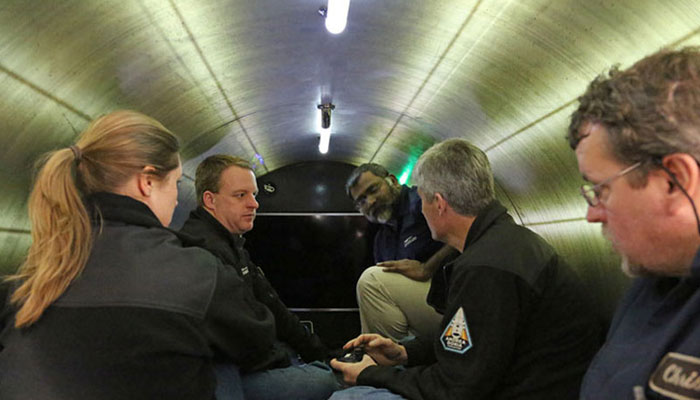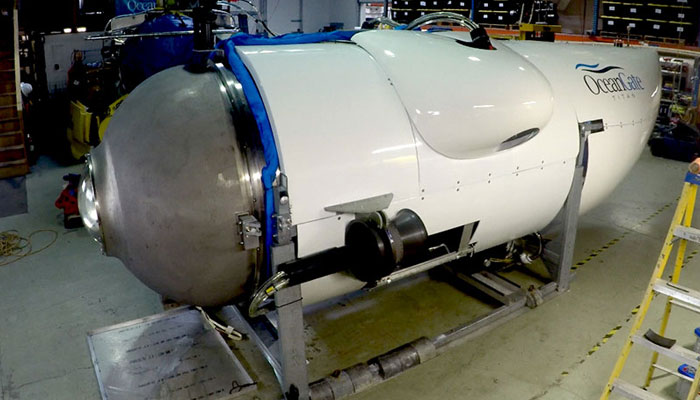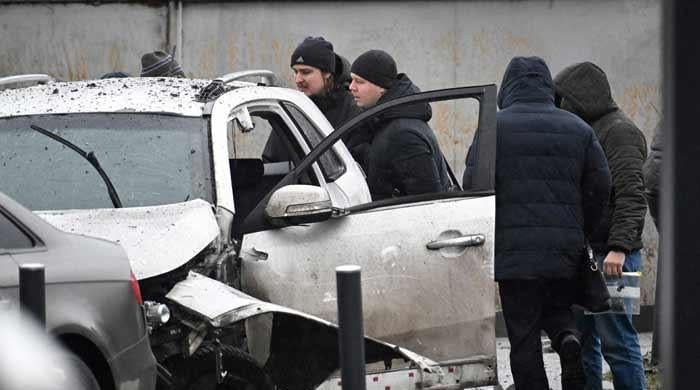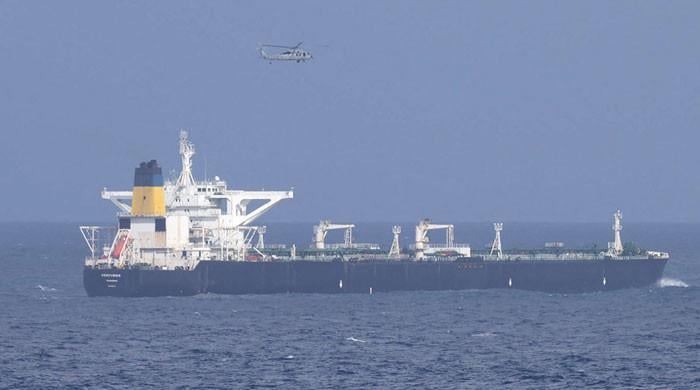Oxygen 'not the only problem missing submersible crew faces'
It is anticipated "falling level of oxygen may increase concentration of carbon dioxide in missing submersible Titan"
June 22, 2023

It is indeed terrifying to get stuck thousands of feet underwater in a submersible with one thing in mind, "depleting oxygen will kill us after some hours," causing fear and panic to exacerbate among the five crew members on board.
However, running out of oxygen is not the only problem the crew is facing as the vessel may have lost electricity which, as a result, could have control over the supply of oxygen and carbon dioxide inside the missing submersible.
It is anticipated that the falling level of breathing oxygen may increase the concentration of carbon dioxide in the submersible, which could have adverse impacts on the crew's health.
Dr Ken Ledez, a hyperbaric medicine expert at Memorial University in St John's, Newfoundland, told BBC that "as levels of carbon dioxide build-up, then it becomes sedative, it becomes like an anaesthetic gas, and you will go to sleep."
This gas in people’s bloodstream — also known as hypercapnia — can cost their life if they do not receive timely treatment.
Former Royal Navy submarine captain Ryan Ramsey said he looked at videos online of the inside of Titan and could not see a carbon dioxide removal system, known as scrubbers.

"That, for me, is the greatest problem of all of them," he says.
Concurrently, the people onboard the missing Titan — which is owned by private tourism company OceanGate, taking people to visit the Titanic wreckage in the North Atlantic — are also exposed to the risk of hypothermia, where the body gets too cold.
Capt Ramsey said: “If the sub is on the seabed, the water temperature will be about 0 degrees Celsius. If it has also lost electricity, it will not be generating any power and therefore cannot generate heat."
This condition could hamper the crew members to hamper their ability to communicate with the rescue mission.
"If they're unconscious, they're not going to be able to do much to help themselves," added Dr Ledez.
Ramsey underlined that slowing their breathing would also help, however, he also said this could be difficult considering the stress they would be under.
Dr Ledez noted: "They could also spread out carbon dioxide-absorbing granules or reduce their power use if they still have electricity."
In terms of food and water, the Coast Guard said the crew had some limited rations on board but couldn't say how much.
Despite all these challenges, Dr Ledez urged against cancelling the search-and-rescue operation too soon, saying they might be able to survive even when oxygen levels are very low.
Dr Ledez: "If anybody can survive in it, you know, it's these individuals, it just depends on them having power and depends on them having light to be able to find things and make these controls, but absolutely, they could still be alive."









